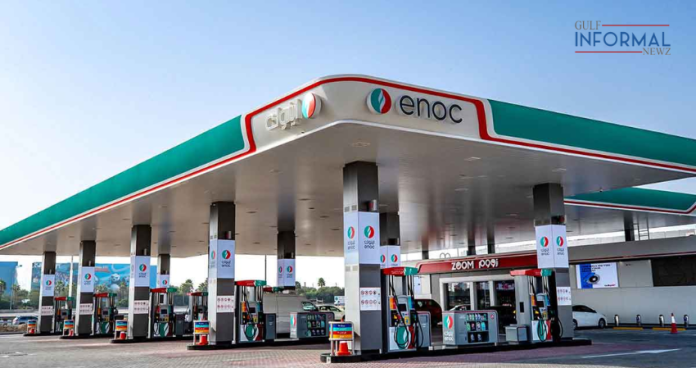UAE petrol prices for March 2024 will officially increase, according to the announcement from the UAE fuel price committee made on Thursday February 29. After a slight increase in petrol prices in February, the price at the pump is going up again.
New UAE petrol prices for March are higher still. The new rates will then come into effect today, Friday March 1, 2024.
UAE petrol prices March 2024 :
- Super 98 petrol: Dhs3.03 per litre, up from Dhs2.88 in February
- Special 95 petrol: Dhs2.92 per litre per litre, up from Dhs2.76 in February
- E-plus 91petrol: Dhs2.85 per litre, up from Dhs2.69 in February
- Diesel: Dhs3.16 per litre, up from Dhs2.99 in February
Since 2015, the UAE has revised petrol prices on a monthly basis in line with global rates.
UAE petrol prices reached an all-time high in July 2022, with Super 98 costing Dhs4.63 per litre.
In 2023, petrol prices peaked in October, and declined in November, December and January.
You can see how prices have fluctuated in recent months below.
February 2024
- Super 98 petrol: Dhs2.88 per litre, up from Dhs2.82 in January
- Special 95 petrol: Dhs2.76 per litre per litre, up from Dhs2.71
- E-plus 91petrol: Dhs2.69 per litre, up from DhsDh2.64
- Diesel: Dhs2.99 per litre, down from Dhs3
Fuel prices in the country were liberalised in 2015, with local rates being aligned with global oil prices.
For the past eight years, the fuel price committee has met on a monthly basis to announce revised rates.
The government hopes the measure will encourage more residents to use public transport while also incentivising the use of alternative fuels.
For Bilal Mohammed, a regular commuter from Dubai to Ajman, typically spent Dh500 on fuel each month, Bilal now faces an extra cost of nearly Dh60 due to the increased rates.
“My monthly refuelling expense will escalate to over Dh500. I refuel for Dh125 each time and now I may have to pay a little extra. My travel may increase this month which I will have additional expenditure,” said Bilal, who works at a hospital in Ajman.




